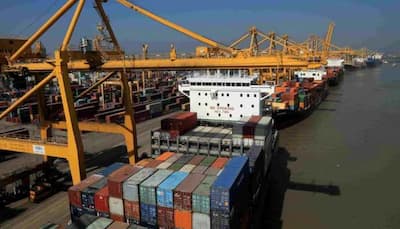New Delhi: In a decision that follows pointed remarks by Bangladesh’s interim Chief Adviser Muhammad Yunus, India has tightened access for Bangladeshi goods through its northeastern land ports.
Speaking during a visit to China, Yunus referred to India’s northeast as a “landlocked region with no access to the ocean” – a phrase that Indian officials did not take lightly.
The fallout?
Bangladesh’s thriving ready-made garment (RMG) exports – along with plastics, furniture, melamine, juices, processed food and more – now face rerouted journeys via Kolkata or the Nhava Sheva port in Maharashtra. That shift means longer trips, higher costs and tighter margins for Bangladeshi exporters.
BIG BREAKING:
India limits Bangladesh garment imports to Kolkata, Mumbai seaports; Land ports closed in a reciprocal gesture to Bangladesh
India’s Northeastern land ports barred for select Bangladeshi goods.
— Sidhant Sibal (@sidhant)
Until now, 93% of Bangladeshi exports to India flowed through northeastern gateways in Assam, Meghalaya, Tripura, Mizoram and through Fulbari and Changrabandha in West Bengal. The re-routing is poised to hit Bangladesh’s RMG sector the hardest, which annually exports over USD 740 million worth of garments to India.
India has framed the move as one of trade fairness, citing long-standing asymmetries. “Bangladesh cannot assume market access without reciprocity. For years, India extended concessions without equal returns. This decision restores balance,” an official told ANI.
There is more to it than political optics. Indian exporters have repeatedly flagged Bangladesh’s restrictions on Indian goods, particularly through the Integrated Check Posts (ICPs) bordering the northeastern states.
In addition, Bangladesh’s transit charges – 1.8 taka per tonne per kilometre for Indian goods compared to 0.8 taka domestically – have been viewed in New Delhi as discriminatory.
Officials argue that these charges have stifled industrial growth in the northeast, effectively blocking economic integration with the Indian heartland. “Industrial growth in the Northeastern states suffers a triple jeopardy,” a source noted, pointing to both logistical and policy hurdles imposed by Dhaka.
For Bangladesh, the immediate impact is economic. Rising transport costs and limited access to key Indian markets threaten to disrupt its export-led growth model. But for Indian manufacturers, the trade pivot may offer fresh opportunities to fill the supply vacuum.
A diplomatic standoff, a redirected truck route and a reminder – in geopolitics, words carry weight, especially when they redraw trade maps.
(With ANI inputs)
Stay informed on all the , real-time updates, and follow all the important headlines in and on Zee News.








